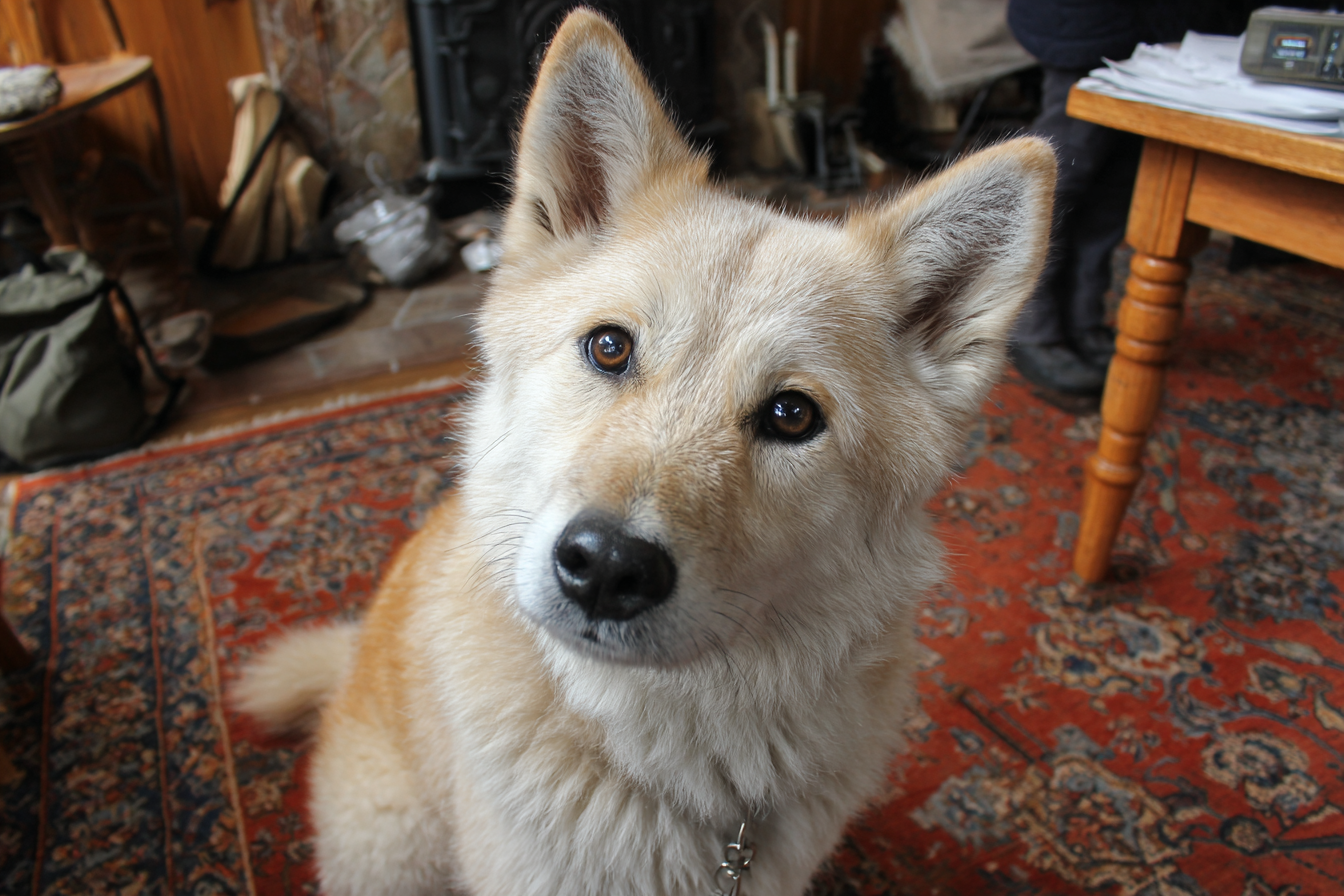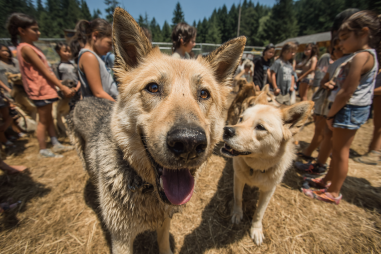Chinooks are a captivating breed known not only for their striking appearance but also for their distinctive temperament and personality. Bred originally for sledding and drafting, these dogs boast a combination of gentleness, intelligence, and energy, making them a beloved companion for many families. If you’re considering adding a Chinook to your home or simply curious about this unique breed, understanding their temperament and personality traits is essential. Let’s explore what makes Chinooks so special and how they might fit into your lifestyle.
Introduction to Chinook Temperament
The Chinook dog is often described as a friendly and affectionate breed with a calm yet playful disposition. Developed in the early 20th century in New Hampshire, the breed was intended to be a working sled dog that was also adaptable and approachable. This goal influenced their temperament, creating a dog that is not only brave and hardworking but also devoted and easygoing. Chinooks tend to have a balanced personality—they’re neither overly aggressive nor excessively shy, striking a harmonious middle ground that appeals to many dog lovers.
Common Personality Characteristics
One of the most defining features of the Chinook’s personality is their intelligence. They are quick learners and respond well to positive reinforcement during training. This intelligence pairs nicely with their natural curiosity, keeping them mentally engaged and eager to explore new activities.
Chinooks are also known for their gentle nature. They tend to be very patient and calm around people, which makes them excellent family pets. These dogs have a mellow attitude inside the home, often content to relax with their loved ones after exercise or work. Despite their calm demeanor at times, Chinooks are energetic and playful outdoors. Their love for running and pulling makes them suited to active homes where they can get regular exercise.
The breed is also noted for being social and somewhat outgoing. Chinooks typically enjoy meeting new people and other dogs but may take a moment to warm up to strangers—this natural reserve can be seen as a sign of their loyalty to their family unit rather than any aggressive tendencies.
Interaction with Children and Other Pets
One of the biggest advantages of owning a Chinook is their superb compatibility with children. Their gentle and patient temperament makes them excellent companions for kids of all ages. Chinooks tend to be tolerant of the noise and excitement that naturally comes with children, and they often enjoy playing games and engaging in physical activities with them.
Additionally, Chinooks usually get along well with other pets, especially if they are socialized early. Their friendly nature helps them adapt smoothly to multi-pet households, including homes with other dogs, cats, or even smaller animals. However, proper introductions and gradual socialization remain essential for maintaining harmony, as Chinooks can have a strong prey drive rooted in their working dog heritage.
Adaptability in Different Living Situations
When it comes to living environments, Chinooks are quite adaptable but do best in homes where they have access to outdoor space. Their high energy levels mean daily exercise is crucial—for example, a large fenced yard or access to parks where they can run freely. Chinooks can adapt to apartment living if owners are committed to providing sufficient exercise and mental stimulation, but a more spacious home is generally preferred.
Despite their adaptability, Chinooks tend to thrive in environments where family members are actively involved in their lives. They can develop separation anxiety if left alone for long periods, so a household with people who spend ample time at home or provide doggy daycare or companionship works best. Their affectionate demeanor means they enjoy bonding and being part of daily routines.
How Temperaments Affect Training
Training a Chinook is usually a rewarding experience thanks to their intelligence and eagerness to please. Their gentle disposition makes them responsive to positive reinforcement methods such as treats, praise, and playtime. Chinooks are not typically stubborn, but they do have an independent streak common to many working breeds, so consistent and patient training techniques are key.
Because they thrive on mental enrichment as much as physical activity, incorporating games, puzzle toys, and obedience challenges can help keep a Chinook engaged during training sessions. Early socialization is also particularly important for this breed—not only to ensure good behavior around strangers and other animals but also to build confidence and reduce any initial shyness.
When owners understand the Chinook’s temperament—gentle, intelligent, and independent—they can tailor training approaches to bring out the best behavior and strengthen the bond between dog and owner.
Case Studies and Owner Experiences
Many Chinook owners share glowing reviews of their dogs’ loyalty and disposition. One owner from Vermont described their Chinook as “a calm, loving family member who eagerly participates in outdoor adventures yet is content to relax indoors.” This balance is a recurring theme among Chinook enthusiasts.
Another owner highlighted how their Chinook’s gentle temperament helped their children develop empathy and responsibility through daily interaction and training. The dog became “a patient playmate and an intuitive guardian,” showcasing the breed’s natural connection to families.
Stories often mention the Chinook’s adaptability as well. For example, an owner living in a suburban environment successfully managed the breed’s exercise needs by incorporating daily runs and mentally stimulating games, proving that Chinooks can flourish in less rural settings with the right care.
Is a Chinook the Right Companion for You?
Deciding whether a Chinook is the perfect fit comes down to understanding your lifestyle and how it aligns with the breed’s temperament and personality. If you seek a dog that is intelligent, gentle, social, and energetic, the Chinook might be ideal.
These dogs need:
- Regular physical exercise and mental stimulation
- Social interaction with family, children, or other pets
- Patience and positive training techniques
- An environment where they can feel connected and part of daily life
If you can provide the time and affection a Chinook deserves, you’ll gain not just a pet but a loyal, loving companion who brings joy, activity, and warmth to your home. Their unique blend of working breed determination and family-friendly temperament makes them a stand-out choice for many dog lovers seeking a special bond.







